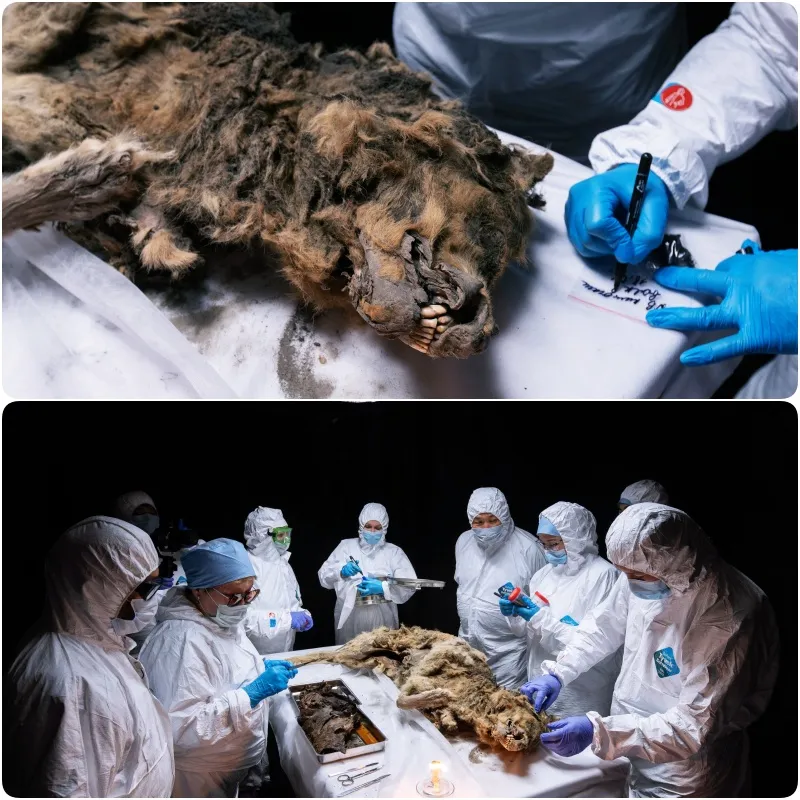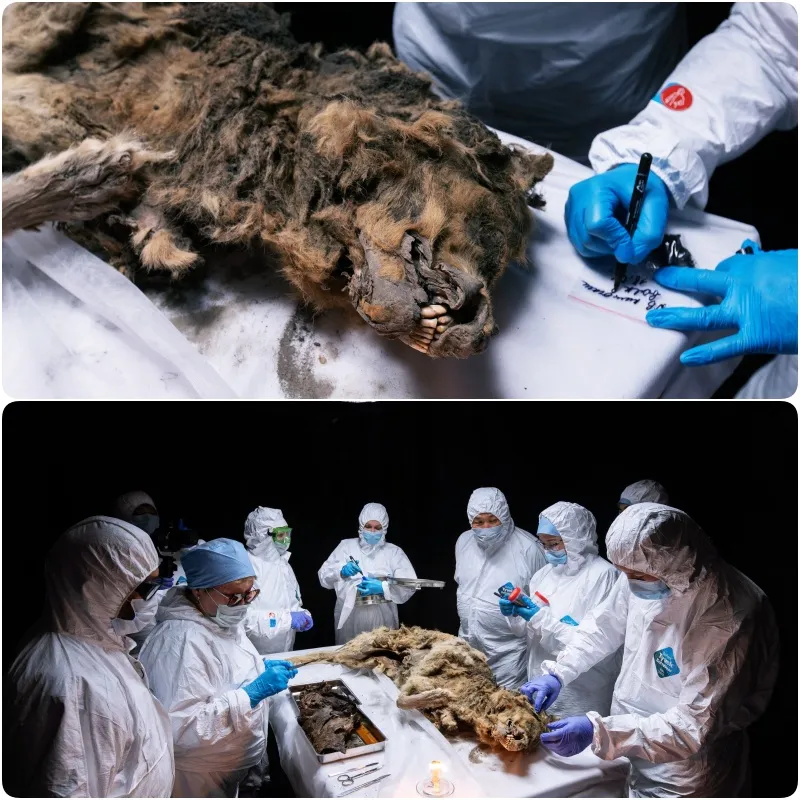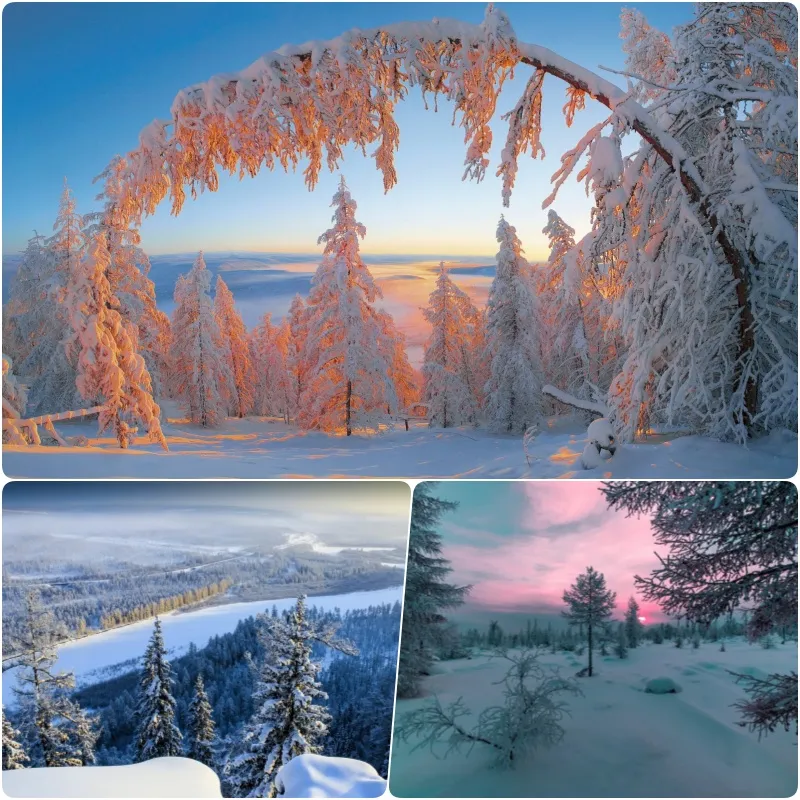Ancient Wolf Frozen for 44,000 Years Shows Its Teeth After Being Thawed from Permafrost

Ancient Wolf Frozen for 44,000 Years Reveals Its Teeth After Thawing from Permafrost
A team of Russian scientists has made a groundbreaking discovery in Yakutia, eastern Russia, where they examined the remains of an ancient wolf preserved for an astonishing 44,000 years in the region’s permafrost. The remarkably well-preserved specimen, with its teeth and much of its fur intact, offers a rare glimpse into the distant past. The wolf was found in 2021 by local residents who stumbled upon its remains buried deep within the thick permafrost.

Yakutia, a region known for its extreme cold, is almost perpetually frozen, which has played a crucial role in the preservation of this ancient predator from the Pleistocene epoch. The permafrost has effectively acted as a natural freezer, preserving not only the wolf’s fur and teeth but also various other tissues. Albert Protopopov, head of the mammoth research department at the Yakutia Academy of Sciences, noted that this discovery is the first of its kind globally, marking a significant find in the study of late Pleistocene predators.
“This wolf was a highly active and agile predator, likely larger than contemporary wolves. While smaller than lions and cave bears, it was still a formidable hunter and scavenger. This discovery provides a unique opportunity to investigate the diet and lifestyle of this ancient predator,” Protopopov explained.
The study of the wolf’s genome could shed light on its place in the evolutionary tree of canines. Initial analysis of one of its teeth suggests that the wolf was a mature male. The animal likely hunted in a frigid, flat landscape that was home to now-extinct species such as mammoths, woolly rhinoceroses, horses, bison, and reindeer. There is even a possibility that remnants of these extinct species might be found within the wolf’s stomach, offering further insight into its diet and ecological role.

Yakutia, positioned between the Arctic Ocean and the eastern Arctic regions of Russia, is characterized by its vast expanses of swampy terrain and dense forests. Approximately 95% of the region is covered by permafrost, with winter temperatures plunging as low as minus 62°C. However, the effects of global warming have begun to thaw this ancient ice, making it more common to uncover well-preserved animal remains from millennia past buried beneath the thick layers of frozen earth.
The discovery of this ancient wolf underscores the rich and complex history that lies hidden in the frozen landscapes of Yakutia, revealing new chapters about the life and times of creatures that once roamed the Earth.






